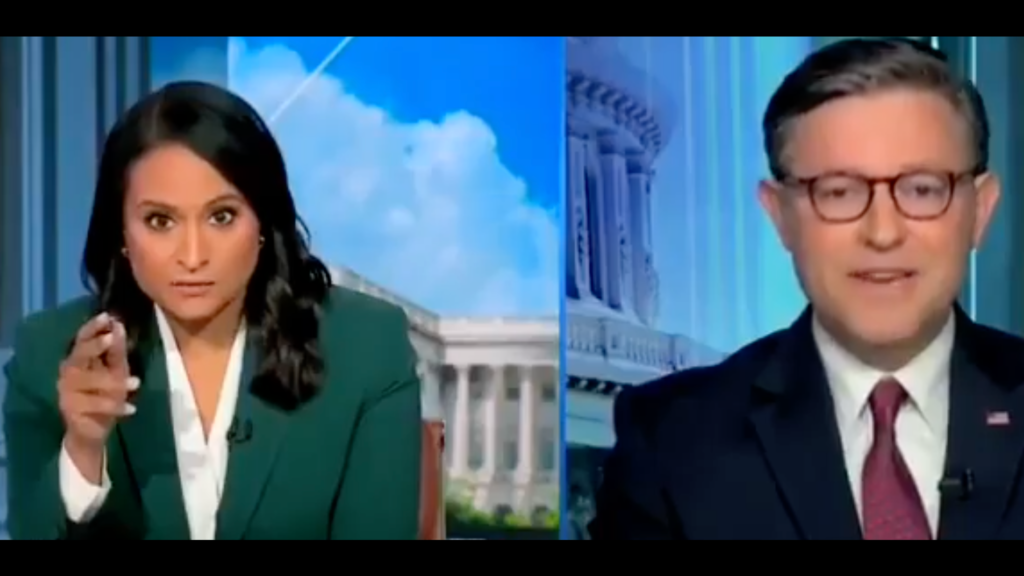In a recent broadcast of NBC’s “Meet the Press,” Speaker of the House Mike Johnson faced a barrage of questions from host Kristen Welker primarily focused on former President Donald Trump’s health, notably his cholesterol levels. This inquiry comes amid growing concerns within the Democratic Party regarding the electoral viability of their candidate, Vice President Kamala Harris. Many in the media appear to be shifting their focus from pressing national issues—like the aftermath of devastating hurricanes and rising costs of living—to topics that some view as sensational rather than substantive. Welker’s insistence on medical disclosures underscores what critics perceive as a deflection tactic designed to draw attention away from the Biden-Harris administration’s challenges.
During the interview, Welker pressed Johnson to clarify whether Trump would release a full suite of medical records, including details about cognitive tests he previously claimed to have passed. Johnson, however, dismissed her inquiries as irrelevant, arguing that Americans are more concerned with the tangible impacts of economic policies than with Trump’s health metrics. This tension highlights a growing divide in media narratives, where campaigns and coverage often veer into personal territory rather than addressing pressing societal issues. Critics of the media’s approach suggest it not only trivializes important discussions but also risks alienating voters who prioritize economic stability and recovery efforts.
The Democratic Party and its affiliates seem increasingly anxious as they witness their candidate’s faltering momentum. Harris’s struggles have prompted an intense examination of their messaging strategies, including attempts to pivot the narrative toward Trump. By fixating on his health conditions, they hope to divert attention from the perceived failures of the current administration, particularly the challenges faced by ordinary Americans in daily life. The juxtaposition of personal health inquiries against issues like inflation and recovery from natural disasters reflects the broader struggles within the party to maintain a compelling narrative as election season heats up.
Speaker Johnson’s retort to Welker—a reminder that the electorate cares more about the cost of living than Trump’s cholesterol levels—resonates with many who feel that political discourse has lost its way. In an era where citizens grapple with rising grocery prices and economic uncertainty, the relevance of candidates’ personal health often fades in comparison. Johnson’s commentary accentuates the frustration felt by many voters who seek leaders focused on substantive solutions rather than sensational distractions. His assertion speaks to a wider sentiment that the political class must refocus on policies that directly affect everyday lives.
Furthermore, the insistence on discussing Trump’s health by some media outlets reflects a broader trend of prioritizing personality over policy. The fascination with a candidate’s physical state can overshadow crucial dialogues about governance, fiscal responsibility, and disaster response. As voters increasingly rely on information from various platforms, there is a growing expectation for political reporting to prioritize accountability and efficacy over personal anecdotes or speculative narratives. Voters want to understand how policies impact their lives rather than delve into the personal conditions of political figures.
In essence, the recent exchanges between Kristen Welker and Speaker Johnson encapsulate the ongoing media struggle to navigate the political landscape as electoral pressures mount. With dissatisfaction among voters regarding their current leadership, the media’s attempt to spotlight Trump’s health may inadvertently reveal a deeper reflection of the Democratic Party’s concerns about their future. The narrative that emerges from these discussions will likely play a pivotal role in shaping public sentiment as the nation approaches subsequent elections, emphasizing the need for a return to substantive policy-based dialogue.

